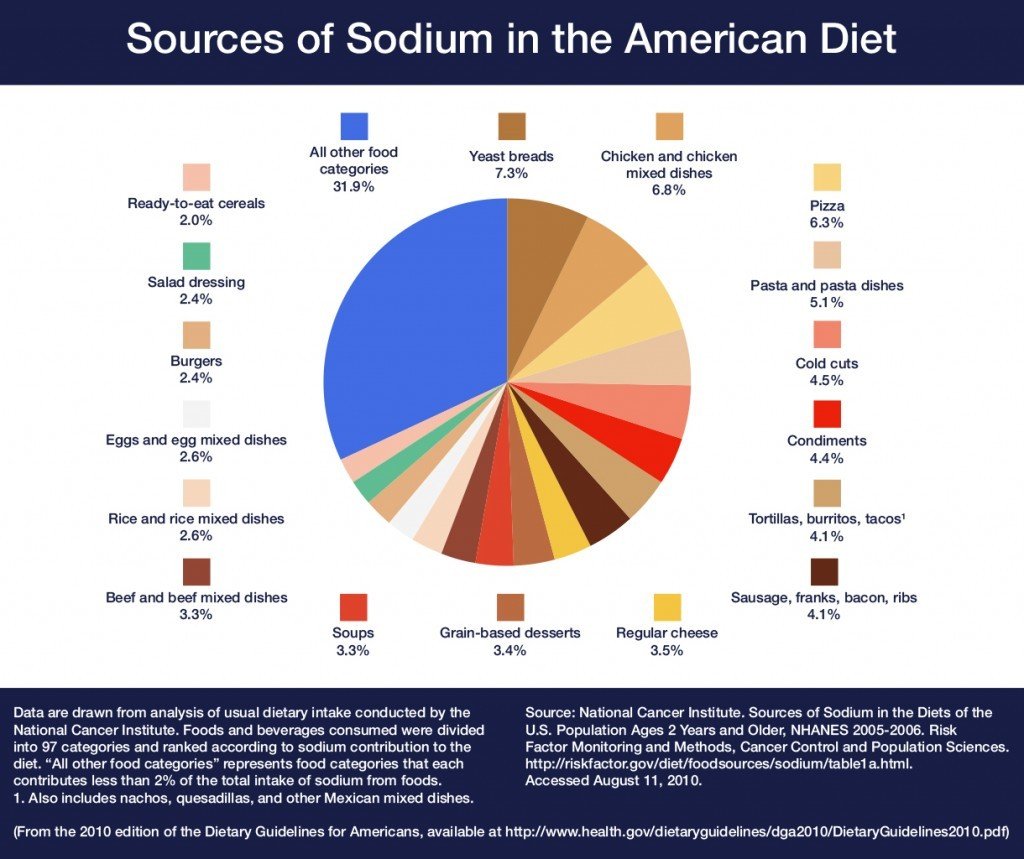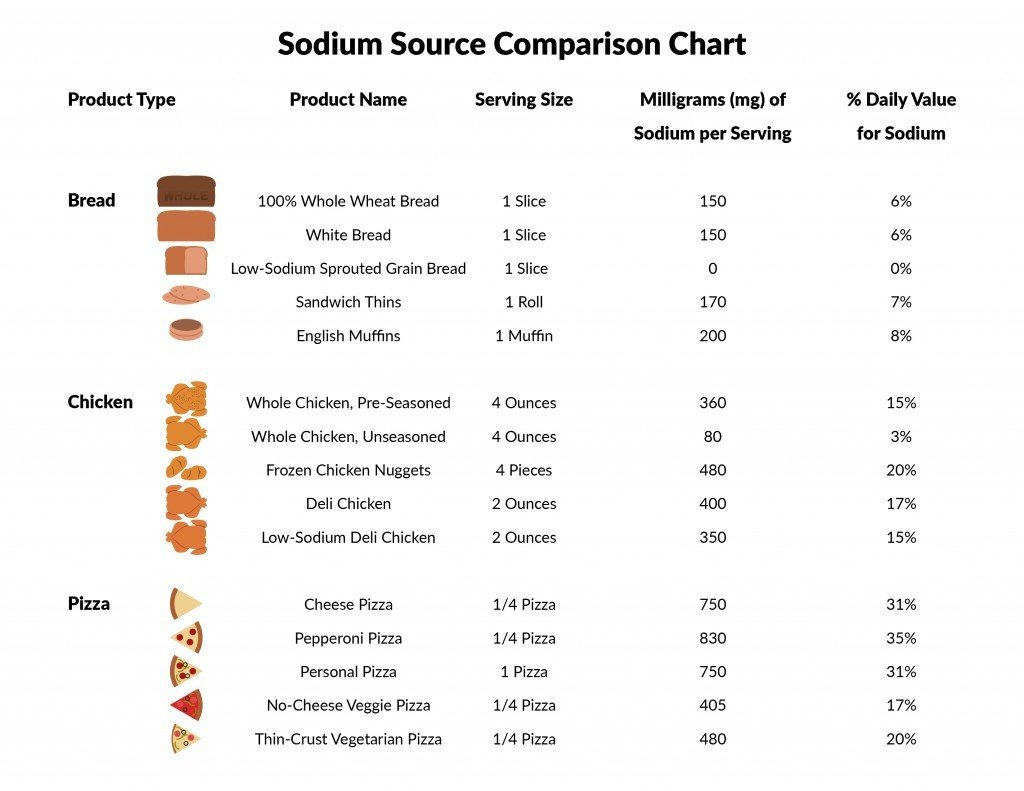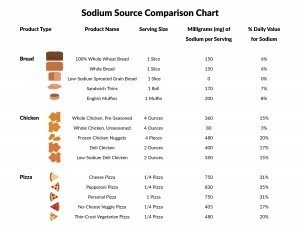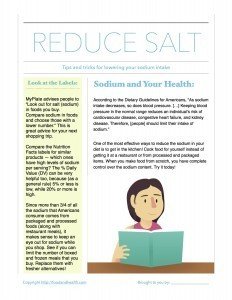Sodium and the American Diet
Sodium is a serious problem in the American diet today. MyPlate, the Dietary Guidelines for Americans, the Centers for Disease Control and Prevention (CDC), the American Heart Association (AHA), and lots of others all have concluded that most Americans need to reduce their sodium intake.Of course, that's easier said than done.Sodium is hiding everywhere. Shocking amounts of it are in restaurant and frozen foods, while many packaged and canned foods have tons of sodium as well. The first step towards reducing sodium intake is learning about which foods have what levels. That's where this chart comes in. According to the Dietary Guidelines for Americans, the top 3 sources of sodium in the American diet* are yeast breads, chicken and chicken mixed dishes, and pizza. Let's take a look at a few forms of each food and see if we can figure out which ones are high in sodium and which are not.
That's where this chart comes in. According to the Dietary Guidelines for Americans, the top 3 sources of sodium in the American diet* are yeast breads, chicken and chicken mixed dishes, and pizza. Let's take a look at a few forms of each food and see if we can figure out which ones are high in sodium and which are not. What do you notice about these top sources of sodium? How much variation is there among different options? How can your clients use this information to make healthful choices?Today, because I love ya, I want to give you a free copy of this sodium chart. Here you go!
What do you notice about these top sources of sodium? How much variation is there among different options? How can your clients use this information to make healthful choices?Today, because I love ya, I want to give you a free copy of this sodium chart. Here you go! To take this discussion to the next level, I've also put together a member-exclusive guide to lowering the sodium in your diet. The post 5 Top Tips to Reduce Sodium Intake walks through the research about sodium's impact on health and a few tried-and-true strategies for cutting down on sodium. There's even a new handout!
To take this discussion to the next level, I've also put together a member-exclusive guide to lowering the sodium in your diet. The post 5 Top Tips to Reduce Sodium Intake walks through the research about sodium's impact on health and a few tried-and-true strategies for cutting down on sodium. There's even a new handout! And for even more sodium resources, don't miss these materials from the Nutrition Education Store...
And for even more sodium resources, don't miss these materials from the Nutrition Education Store...

 *The "All other food categories" section is comprised of foods that contribute less than 2% of total sodium intake.
*The "All other food categories" section is comprised of foods that contribute less than 2% of total sodium intake.


